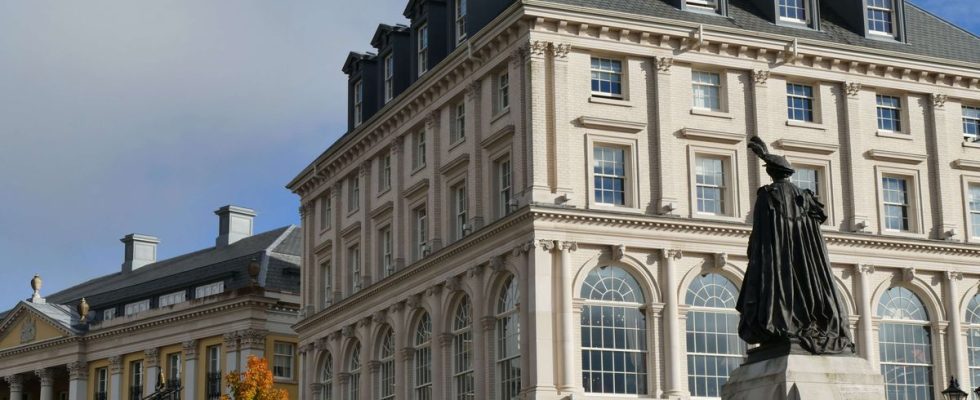Having spent his entire adult life waiting to ascend the throne, Charles III had to keep busy. Among his obsessions, architecture figures prominently. In the early 1990s, he decided to put his ideas into practice by supporting the construction of Poundbury, a “model” housing estate on his land in Dorset where some 3,500 inhabitants now live.
Here, there is almost no concrete. Large houses and civic buildings were built of stone, giving the impression that an upscale London neighborhood had moved to the countryside. “Charles was very keen that the project be developed in accordance with his passionate ideas in architecture,” explains Blake Holt, President of the Poundbury Residents Association.
“Feodal Disneyland”
“It was about providing people with good quality housing that was nice to look at, and creating a nice place to live,” he adds from the Duchess of Cornwall Pub, named in honor of the Queen. Consort Camilla. Charles and Camilla, before becoming king and queen, were the Duke and Duchess of Cornwall, titles now held by the king’s eldest son, William, and his wife Kate.
The King has always been strongly opposed to modern architecture, a position he developed in a 1989 book titled “Vision of Britain”. A few years earlier, he had derailed a National Gallery extension project on Trafalgar Square in London, comparing it to a “monstrous wart”. “Over the years, (the king) has certainly made enemies among architects,” smiles Matthew Carmona, professor of urban planning at University College London. Built in a neoclassical Georgian style, Poundbury has often been criticized since its inception for being a kind of “feudal Disneyland” due to the motley architectural styles adopted.
A village designed for the environment and employees
But the world of architecture, at first skeptical, “has accepted the messages on the need to build in a more sustainable way and to build places where one can walk and where the uses are diversified”. For supporters of the project, Charles’s commitment to developing the high-tech sector in Poundbury also shows that the king is not completely living in the past.
Alun Reece, director of a local company that builds aeronautical equipment, says the village is “well thought out for the environment and for our employees”. The king “is really for progress, but it has to be good progress,” he adds. The inhabitants also seem conquered. “Basically, I told myself that I would never move here”, says Heather Fosdike, 60 years old. “But after a divorce, I feel good and safe being alone.”
“It’s a great place to raise a child,” also explains Jenny Janthe, a 28-year-old mother who previously lived in London. On the other hand, there are no road signs, a will of the king to encourage the inhabitants to show discernment. Some residents still point out the lack of community spirit in the village. For Pastor Glynn Barrow, this is mainly because “there is a gap to be filled, the cost of living is very high here but there is also social housing”.

